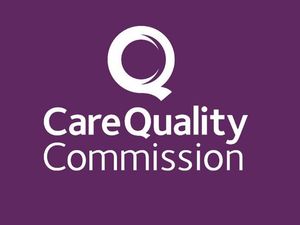Surge testing to deal with covid variants is part of the ongoing pandemic plan
Surge testing to deal with Covid-19 variants is being factored into the plan to deal with the pandemic for the coming months.
The plans reflects Powys Teaching Health Board’s ongoing need to respond to the Covid-19 pandemic, moving towards recovery as well as looking after the wellbeing of health workers.
At a board meeting held on Tuesday, June 29, members were told by Director of Public Health, Stuart Bourne, how they were planning to continue to battle the disease for the rest of the year.
Figures for coronavirus infections and deaths had fallen throughout the UK, but with the emergence of the new Delta variant that originated in India, the number of cases is now rising.
Mr Bourne said: “Covid-19 has not gone away, notwithstanding the really excellent position in Powys and Wales on the vaccination, we are still dealing with cases on a daily basis and that’s likely to continue as we go through for the rest of 2021/22.
“We are growing increasingly confident in the benefits of vaccination in terms of transmission and preventing hospital admissions and death.”
He explained that the work was turning towards dealing with “variants and variants of concern.”
Mr Bourne said: “We are concerned about the potential for coronavirus pandemic to escape, so a lot of the focus for the rest of the year will be our capability to contain any new variant that may occur in the UK as a whole and certainly in Powys.”
Mr Bourne told the board members that the prevention and response plan, which is prepared in partnership with Powys County Council, has been “revised and refreshed” and that the test and trace teams will be in place until at least March 31, 2022.
Mr Bourne said: “We have also looked at other aspects such as if we were required to do surge testing due to a new variant in a small area.
“We’ve done some work just bolstering up our capacity to carry out that type of intensive programme.”
He also explained that there were also plans to roll out more coronavirus testing by making the availability for lateral flow easier to access.
Mr Bourne added that the third area of focus would be to continue to communicate with the Powys public around social distancing and facemask wearing as well as isolating.
“It is still a very rapidly changing environment and the need to respond remains very live and immediate,” said Mr Bourne.
The board approved PTHB’s annual plan.
Usually, PTHB as well as all other Welsh health authorities work on a three-year planning cycle.
But due to the pandemic, the Welsh Government suspended the requirement in March 2020 and introduced quarterly operational plans for the year.
At the moment, the Welsh Government has decided it is not feasible to return to the three year planning cycle but have asked for an annual rather than quarterly plan.
At the end of last week, (June 27) 191,000 vaccination doses have been put into people’s arms in Powys.
In Powys 105,800 people, which equates to 92 per cent of the adult population have received their first jab and 85,300, or 80 per cent have received their second dose.





